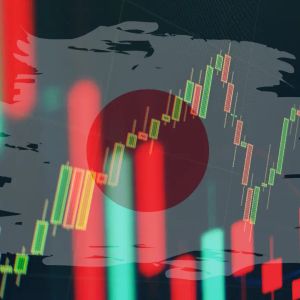Japan’s GDP climbed 0.3% in the April–June quarter, resisting recession pressures despite new U.S. export duties. At an annualized pace, the country’s economy grew 1% in the quarter, exceeding expectations of a 0.4% rise. The yen also appreciated 0.1% to trade at 147.6 against the dollar. Considerably, the trade deficit also contracted in Q2 compared to the first quarter. In Q1, the country’s economy only surged 0.1%, translating to a modest 0.6% annualized gain. Japan’s analysts anticipate interest rate hikes this year For the June quarter, exports also contributed 0.3% to GDP growth even in the face of U.S. duties. Overall, export volumes rose 2% from the previous quarter as firms lowered prices to protect market share. Some exporters also accelerated shipments ahead of a potential tariff hike to 25%, though export values declined in May and June. Tourism also provided an additional lift to net exports, with spending by foreign travelers up 18% in Q2 and first-half arrivals setting a new record. Aside from exports, business investment also spiked 1.3% from the prior quarter, beating the forecast 0.7% gain, while private consumption edged up 0.2%. According to analysts, strong domestic demand supports the case for an additional Bank of Japan rate increase this year. Taro Kimura, an economist, even remarked, “Japan’s surprisingly strong second-quarter GDP bolsters the Bank of Japan’s case for a near-term rate hike, providing evidence that domestic demand is holding firm despite higher US tariffs.” Most analysts, however, expect policymakers to leave rates unchanged in September and raise them later in October. Roughly 42% of economists in Bloomberg’s poll anticipate an October increase. In July, Governor Kazuo Ueda asserted that the BOJ will raise borrowing costs if domestic demand stays resilient. On July 31, the BOJ raised its FY2025 growth estimate to 0.6%, yet warned that worldwide trade and policy changes might curb overseas growth and dent domestic business profits. Analysts warned that tariff drag may surface in Japan’s Q3 data Japan secured a trade agreement with the US on July 23, which President Donald Trump described as “perhaps the largest deal ever made.” The two nations agreed on a 15% blanket tariff on all exports to the U.S., including automobiles . According to Trump, Japan would commit $550 billion in U.S. investments, yielding “90% of the profits” to America. He further claimed Tokyo would allow wider trade in vehicles, rice, select agricultural products, and other goods. He also anticipates that their deal would create more jobs. Nonetheless, Japan would still have to deal with a higher tariff rate than before Trump’s regime. Market experts say the tariff effect may be more pronounced in Q3 as front-loaded shipments wind down. Inflation also remains a concern, with next week’s figures likely to show July price growth exceeding the BOJ’s goal. Even so, wage increases of more than 5% at Japan’s largest companies could help sustain consumer spending in the near term. According to Komiya, real wages would likely pick up in the fall, helping to bolster household finances in the future. Get seen where it counts. Advertise in Cryptopolitan Research and reach crypto’s sharpest investors and builders.
 Market Analysis Report (29 Sep 2025)
Market Analysis Report (29 Sep 2025) XAN is available for trading!
XAN is available for trading!











